BEING born into a famous film family could quite easily have taken Navya Naveli Nanda down the well-trodden path of acting in Bollywood, partying and flashy holidays.
The socially conscious entrepreneur has smashed all those stereotypes about star kids and dared to do things differently. The granddaughter of India’s greatest cinema star, Amitabh Bachchan, and the great-granddaughter of Bollywood legend, Raj Kapoor, has been a driving force for change. Her socially conscious initiatives like Project Naveli, which fights gender inequality in India, and the women-centric tech company, Aara Health, have made a positive difference.
She also hosts a hit podcast with her mother, Shweta Bachchan-Nanda, and the legendary actress and her grandmother, Jaya Bachchan, which is filled with pure girl power. The second season of the globally popular podcast has just commenced and is filled with more great conversations from three generations of women.
In an International Women’s Day special, Eastern Eye spoke to the 26-year-old, who represents a new empowered generation, about her desire to drive social change and why she opted to stay away from acting. The bright, lively personality also spoke about the importance of gender equality, her podcast, the Stand Up Against Street Harassment initiative and her key life lessons.
You come from a very famous family background. What drew you towards wanting to make a positive difference and contribute to social change?
I don’t think coming from the family I do has a correlation to the work I am doing. I believe it is something I would have done, irrespective of my background. I also strongly feel we have a duty to leave society a better place than we found it – there is always something more we can do, give back, or improve upon, and I feel I am playing my part in that journey.
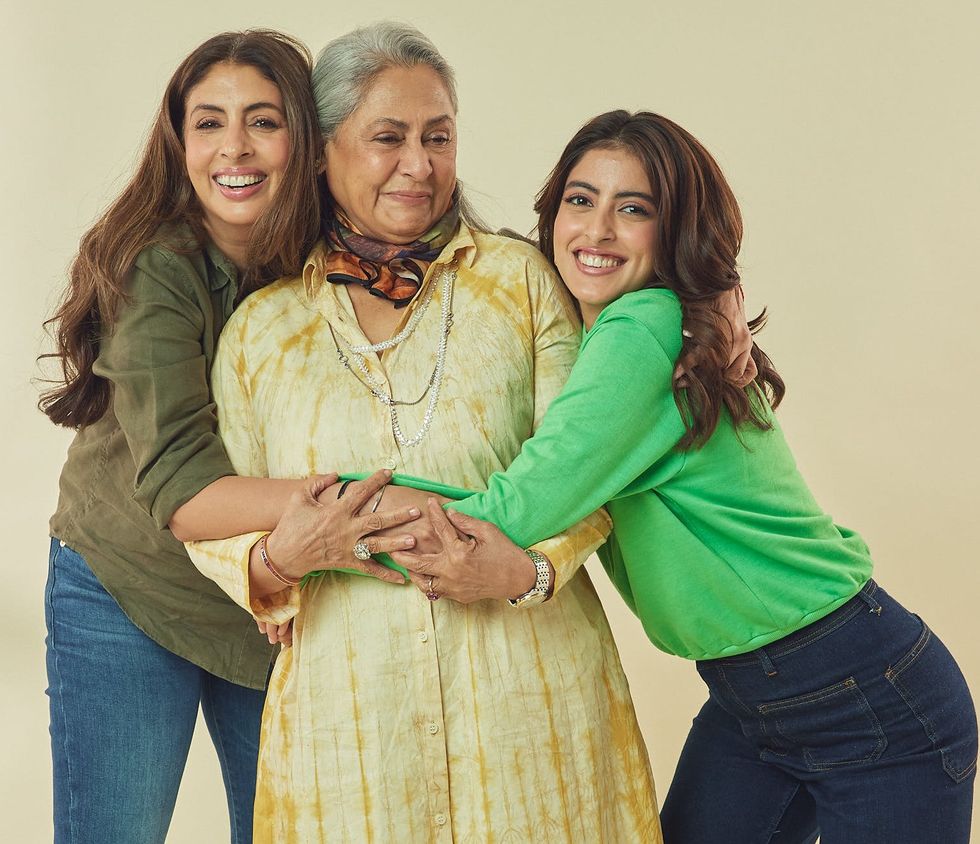
When did women’s empowerment become an important part of your life?
Since I was a kid. I have grown up around very independent and strong women, who have always emphasised the importance of working, while balancing family life. That is what I seek inspiration from. I am not the one to empower women – they are far stronger and superior than we imagine them to be. I am just playing my small part in leaving society a better place than I found it.
What inspired the podcast?
My grandmother and mother are two people with whom I have always shared a very strong bond; we talk and seek opinions from each other on many aspects of life.
This podcast is an ode to that equation that the three of us share and a small glimpse into our world of opinions and beliefs.
Was it easy to get your mother and grandmother on board?
Yes, they are far too kind and indulge me in my every wish or demand. I am fortunate to have them support me and my many different ideas in the way that they do.
What made you call the podcast, What The Hell Navya?
This is a funny story. While we were recording season one, this was a phrase that my mother and grandmother would repeatedly say to me as a reaction to something that I might have said or done. So we felt that it was the best name to give the show.
Tell us more about your podcast.
I have a strong belief that we must, as women, create safe spaces for one another to express and communicate freely.
I also believe that there are certain conversations that need to be had openly in society, through different mediums, so that we can start normalising certain behaviours and trends.
Our podcast tackles some of these very serious and important topics, from the perspective of three different generations. I hope that this can be a starting point or a conversation starter for those who listen to the podcast, to continue the trend of normalising tough conversations and encourage transparency.
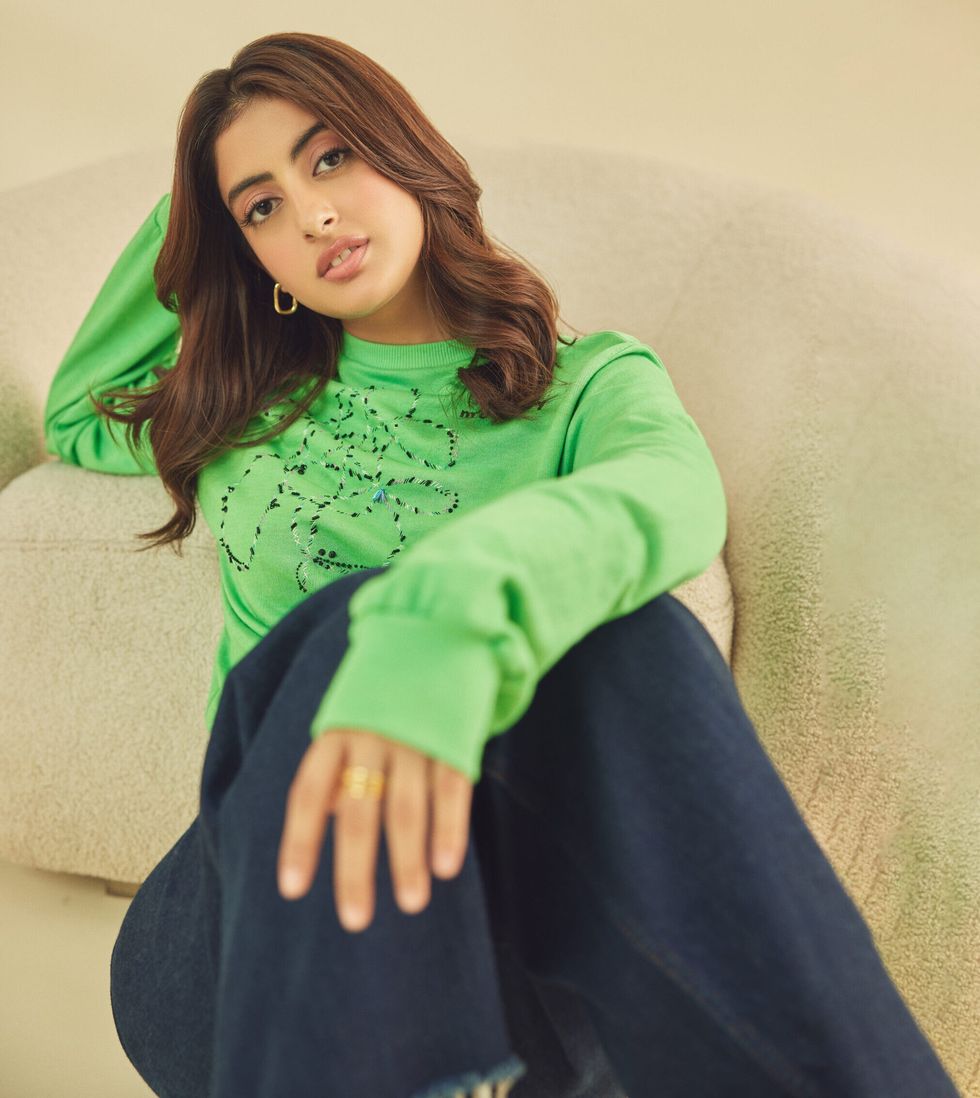
How do you select the topics for the podcast and do you think it’s important to make them relatable?
The topics we have chosen in both the first and second seasons of the podcast are all conversations that the three of us feel are extremely important to have in public forums.
These are also topics that, as a 26-year-old girl, I am curious about and seek answers from my mom and grandmother.
What are the biggest life lessons your mother and grandmother have taught you?
Both have very strong personalities and are very vocal about their views. They have taught me never to be afraid of hurdles that might come my way, even of myself at times, of the world, or of what people think of you. Being unapologetically myself and standing up for what I believe in is the biggest lesson they have inculcated in me.
How do you handle the pressure of being part of a family filled with giants, from business to Bollywood?
Everyone has a last name. And everyone has a responsibility to live up to that last name, not just me. We all do what we do to make our families proud and to carry forward their legacies, no matter who we are or where we come from. I am doing the same.
What led you to become an entrepreneur?
I come from a family of entrepreneurs and industrialists on my father’s side. I grew up in Delhi and spent most of my childhood hearing and watching my father’s journey of growing our agri-tech company, Escorts Kubota. My dadi (paternal grandmother) was a businesswoman herself, my bua (father’s sister) and my mother too – I guess I could say it’s in my blood.
Tell us about Project Naveli?
Project Naveli is a non-profit organisation that I began four years ago, that focuses on providing opportunities and resources to women in India. We have four focus areas and verticals – legal awareness, healthcare, education and entrepreneurship. Our programmes look at supporting women in these areas to help them achieve financial independence and create a sustainable and equitable future.
You also became part of the Stand Up Against Street Harassment initiative. Tell us how that happened.
I have been associated with L’Oreal Paris as a cause ambassador for the past two years. I have been part of their program me, Stand Up Against Street Harassment, an initiative that offers training and methods to protect ourselves from harassment that can occur in public spaces and to create a more inclusive space for men and women. Last year, I embarked on a road trip across the country, taking the students through the Stand Up training.
This year’s International Women’s Day theme is Inspire Inclusion. How much of a pressing concern is gender equality in countries like India?
India celebrated its 75th Republic Day on January 26, and we did so with the first of its kind, an all women’s parade. Women from the armed forces, and across all other fields, participated and stood in unity to further our mission of gender equality.
It is a proud feeling to belong to and work in a country that supports this mission and truly invests in the importance and necessity of gender equality. As a nation, we have athletes, heads of parliament, CEOs and homemakers who are a daily reminder of the strength that Indian women hold, and I am proud to be a small part of that ecosystem.
In terms of female empowerment, what other changes do you want to see?
I would love to see more men join this movement; men play very important roles in our lives, as fathers, brothers, partners and colleagues. It is so crucial to have their support and advocacy to further our mission.
What are your future plans and is acting a part of that?
I am looking forward to spending more time supporting my father grow our family business, Escorts Kubota, which supports one of India’s largest markets, the agriculture sector.
There is a personal joy and sense of pride in supporting our farmers and nation to create prosperity. I think I will leave acting to the pros in my family.
What is your idea of happiness?
My family.
What inspires you?
The women around me.






 Milli Bhatia
Milli Bhatia










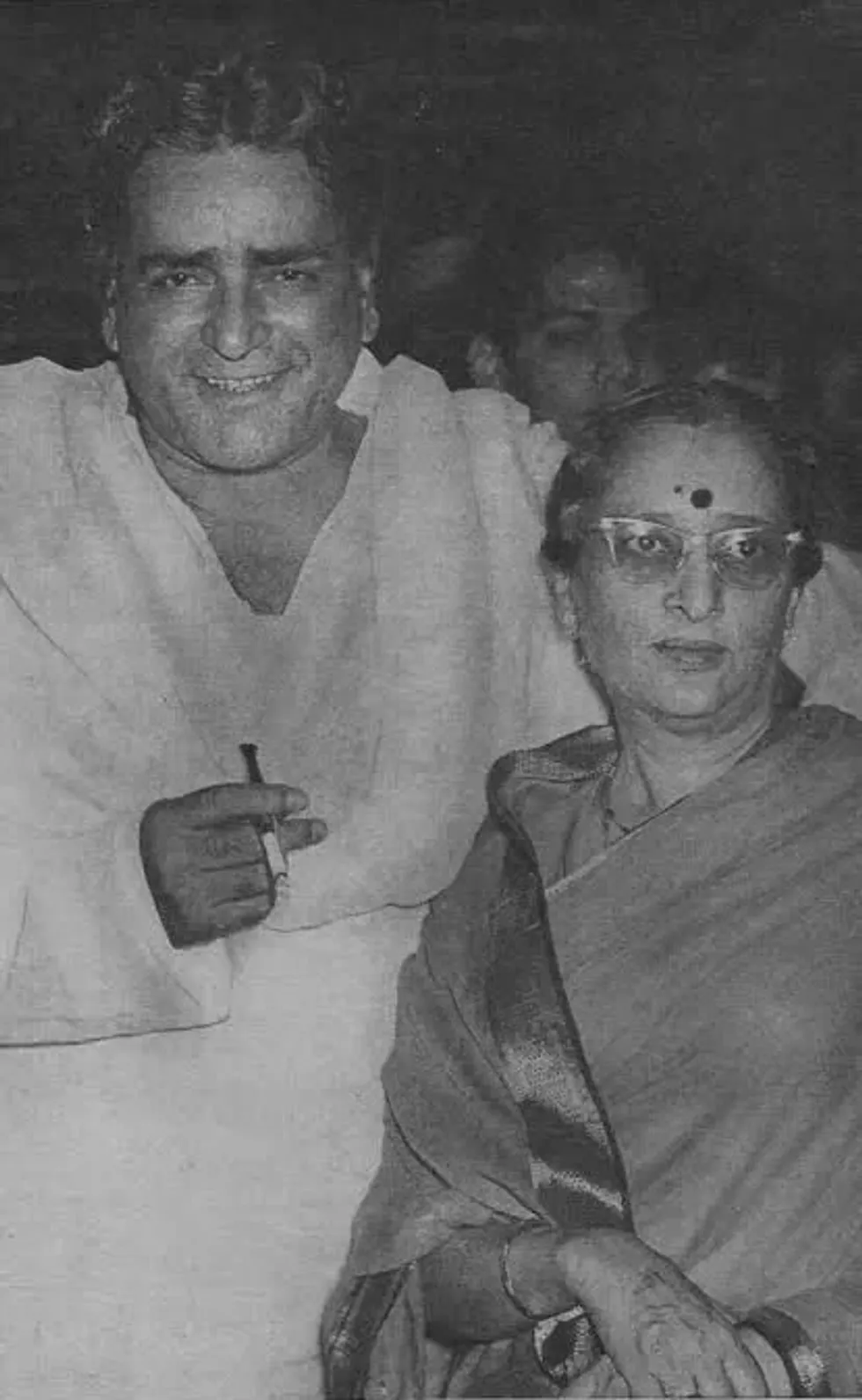 Prithviraj Kapoor and Ramsarni Mehra Reddit/ BollyBlindsNGossip
Prithviraj Kapoor and Ramsarni Mehra Reddit/ BollyBlindsNGossip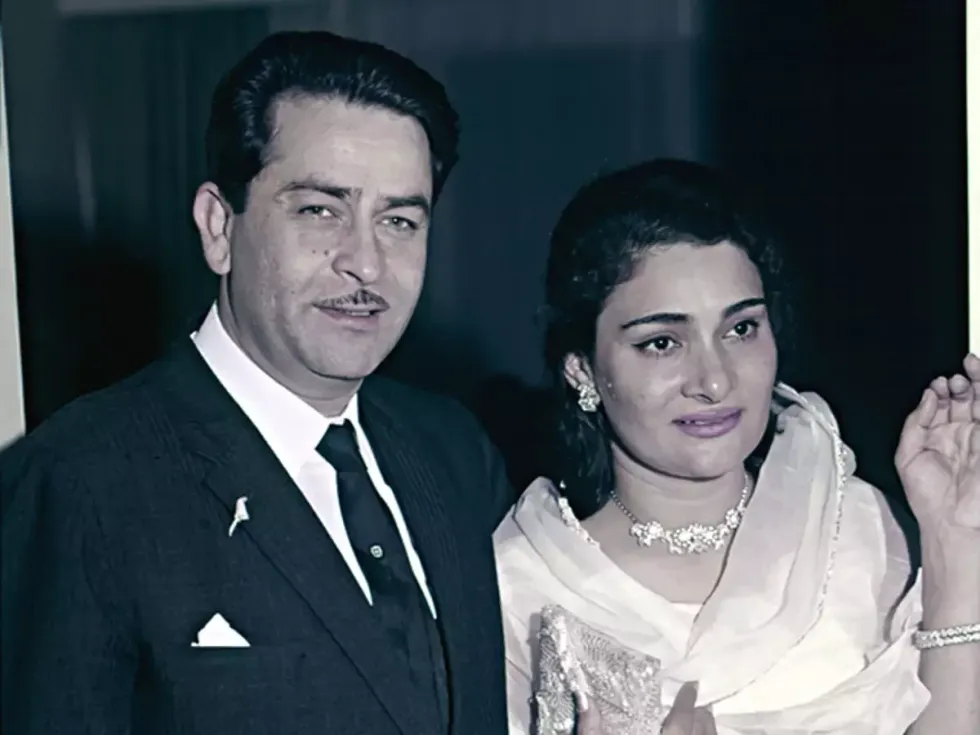 Raj Kapoor and Krishna MalhotraABP
Raj Kapoor and Krishna MalhotraABP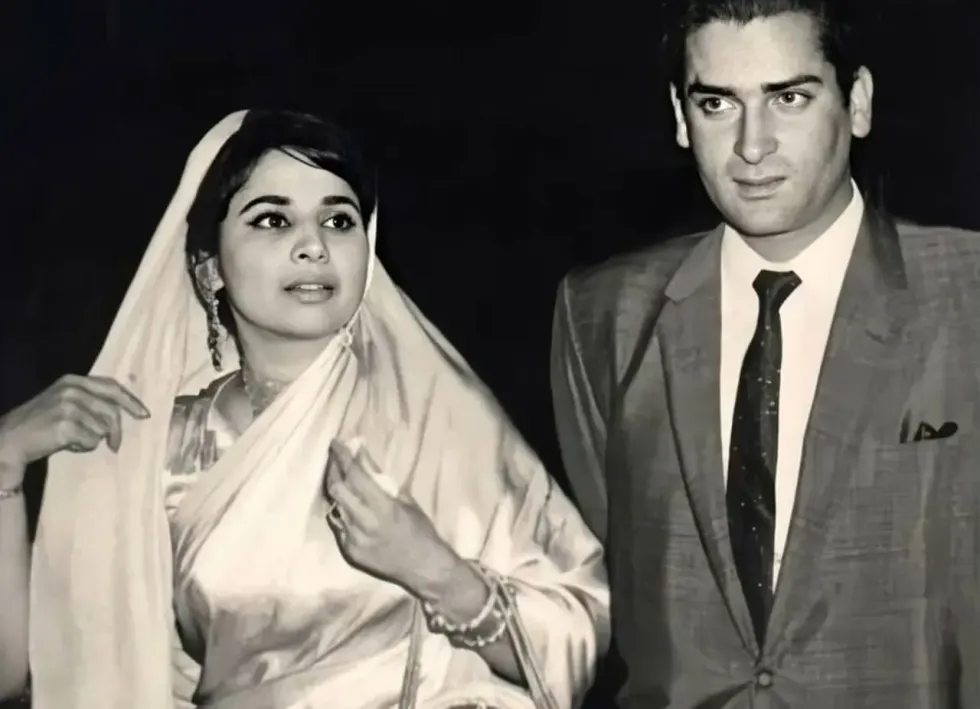 Geeta Bali and Shammi Kapoorapnaorg.com
Geeta Bali and Shammi Kapoorapnaorg.com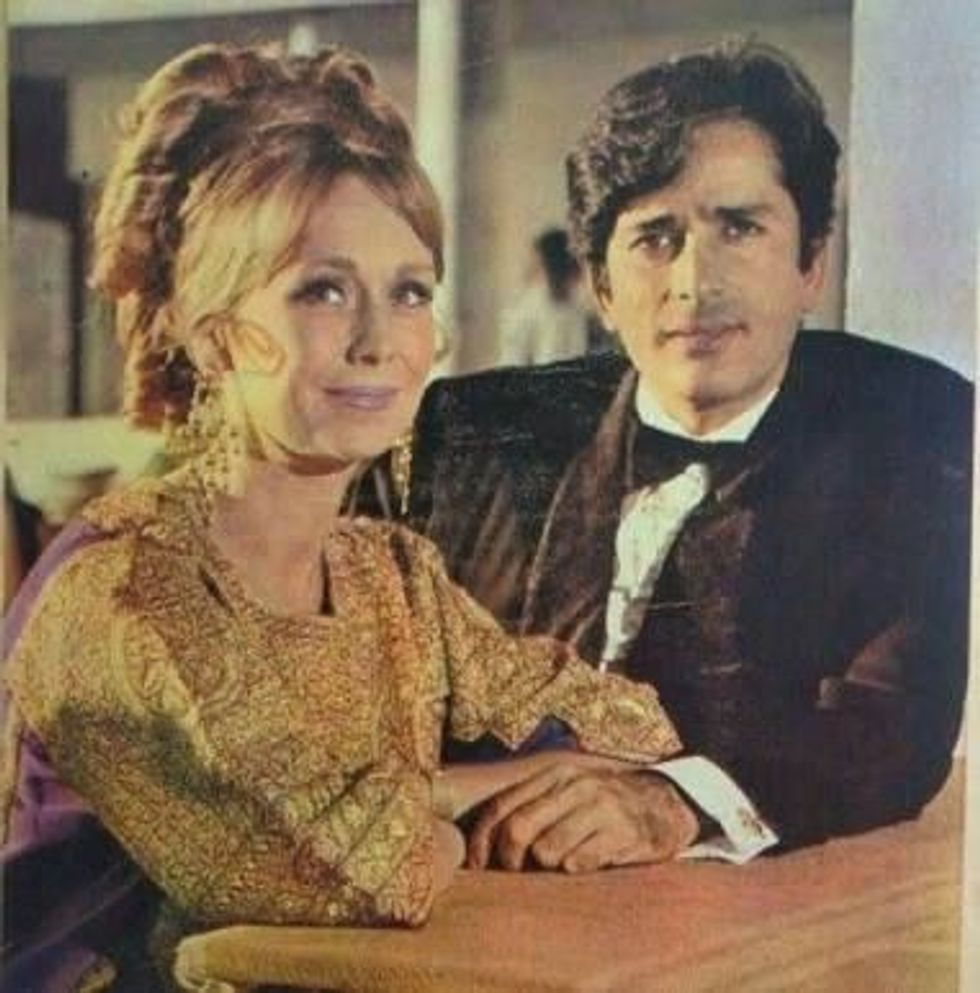 Jennifer Kendal and Shashi KapoorBollywoodShaadis
Jennifer Kendal and Shashi KapoorBollywoodShaadis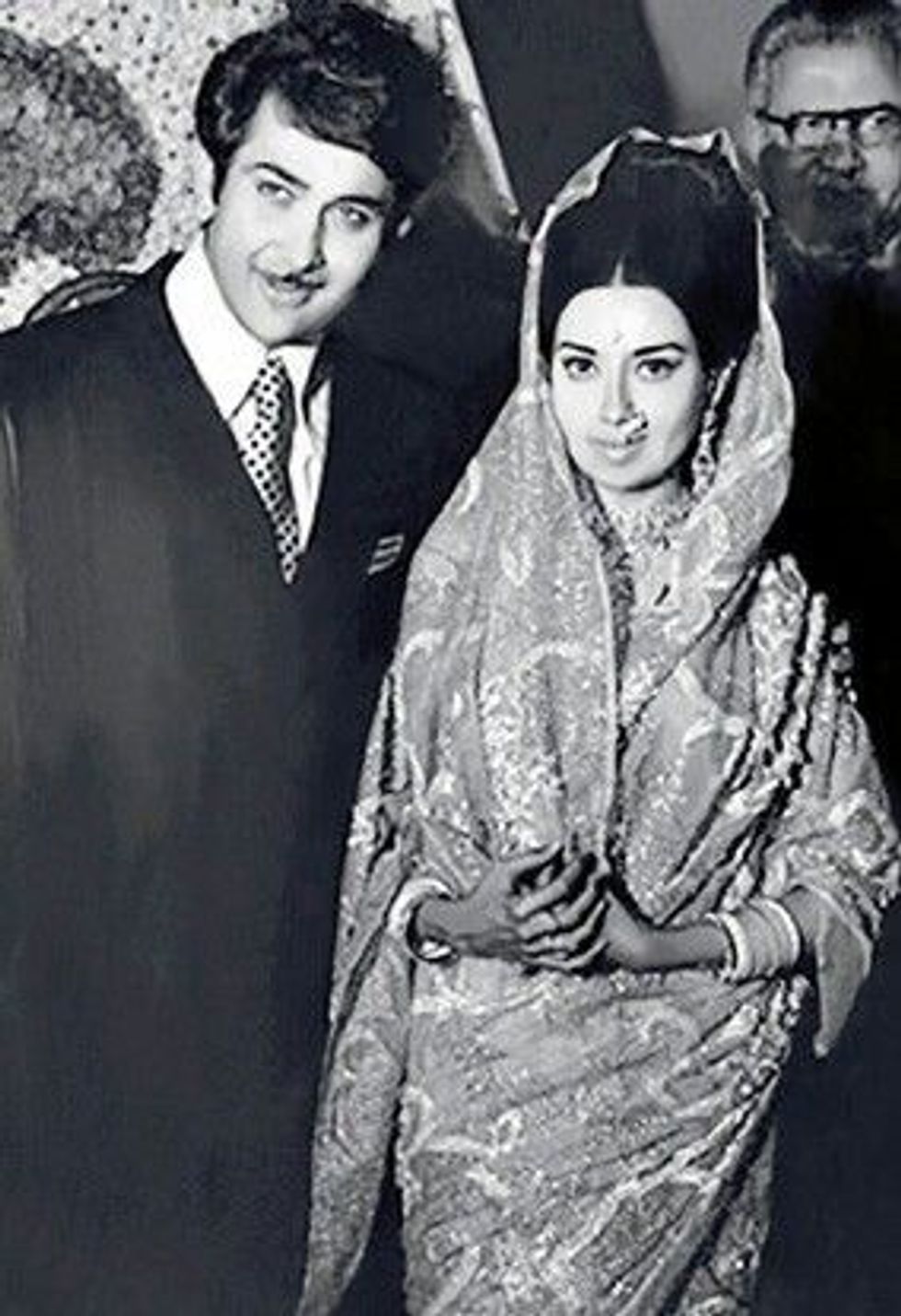 Randhir Kapoor and Babita BollywoodShaadis
Randhir Kapoor and Babita BollywoodShaadis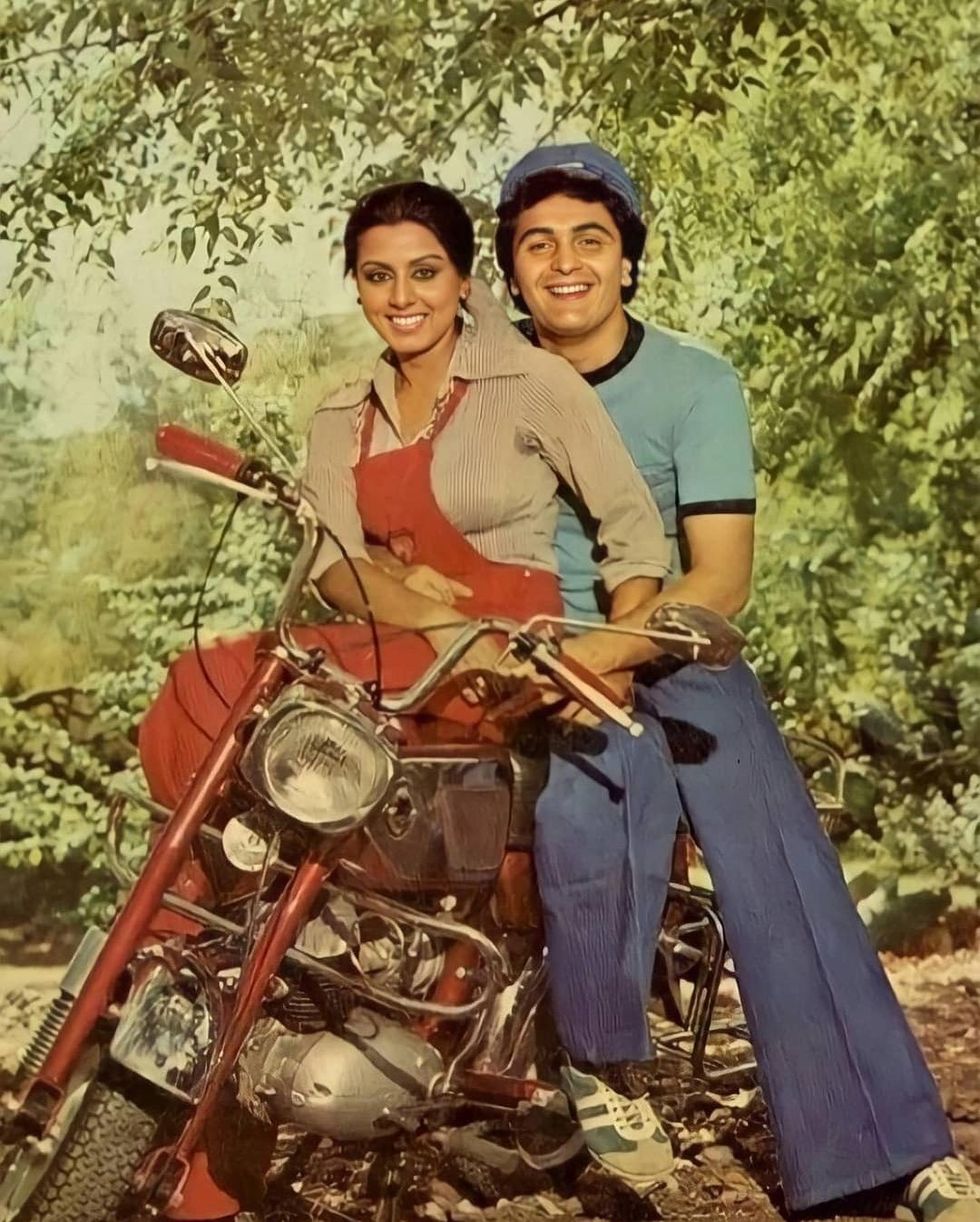 Neetu Singh and Rishi KapoorNews18
Neetu Singh and Rishi KapoorNews18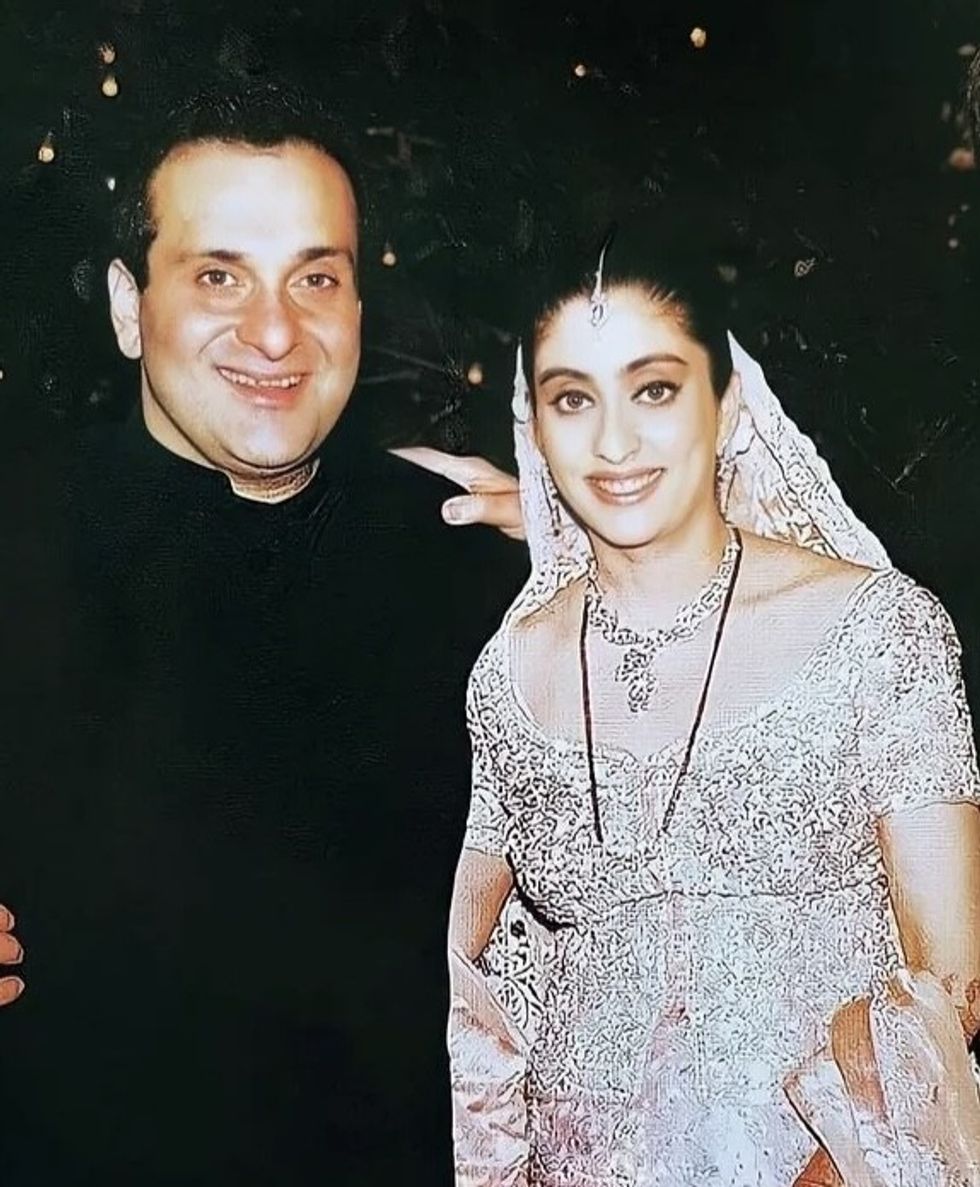 Rajiv Kapoor and Aarti Sabharwal Times Now Navbharat
Rajiv Kapoor and Aarti Sabharwal Times Now Navbharat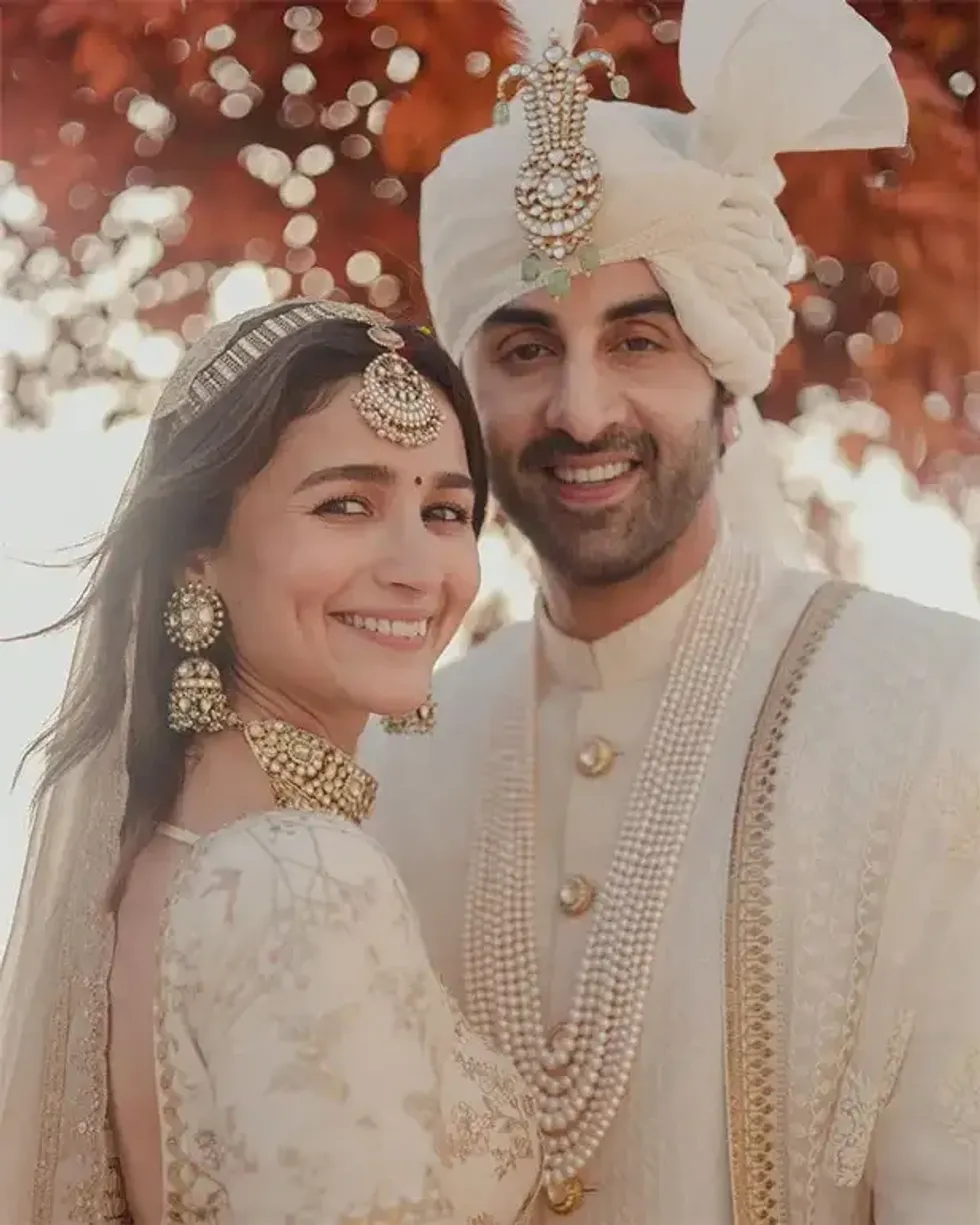 Alia Bhatt and Ranbir KapooInstagram/ aliaabhatt
Alia Bhatt and Ranbir KapooInstagram/ aliaabhatt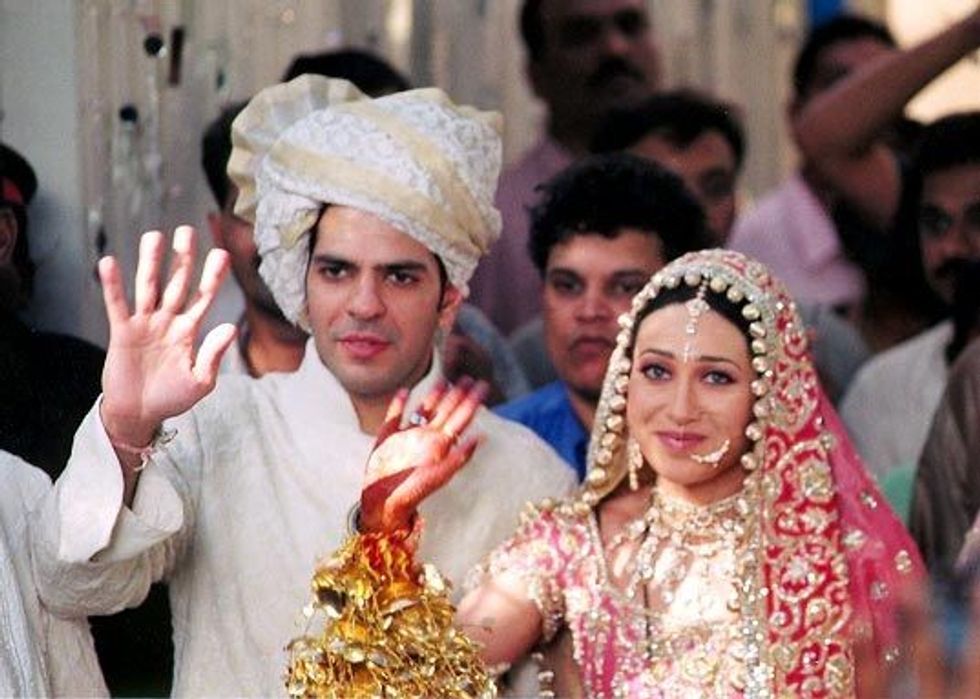 Sunjay Kapur and Karisma KapoorMoney Control
Sunjay Kapur and Karisma KapoorMoney Control
 The real Aurangzeb, the sixth Mughal emperor
The real Aurangzeb, the sixth Mughal emperor Protesters burn a poster of Aurangzeb demanding the removal of his tomb in Nagpur in March
Protesters burn a poster of Aurangzeb demanding the removal of his tomb in Nagpur in March Akshaye Khanna as Aurangzeb
Akshaye Khanna as Aurangzeb Raj Thackeray
Raj Thackeray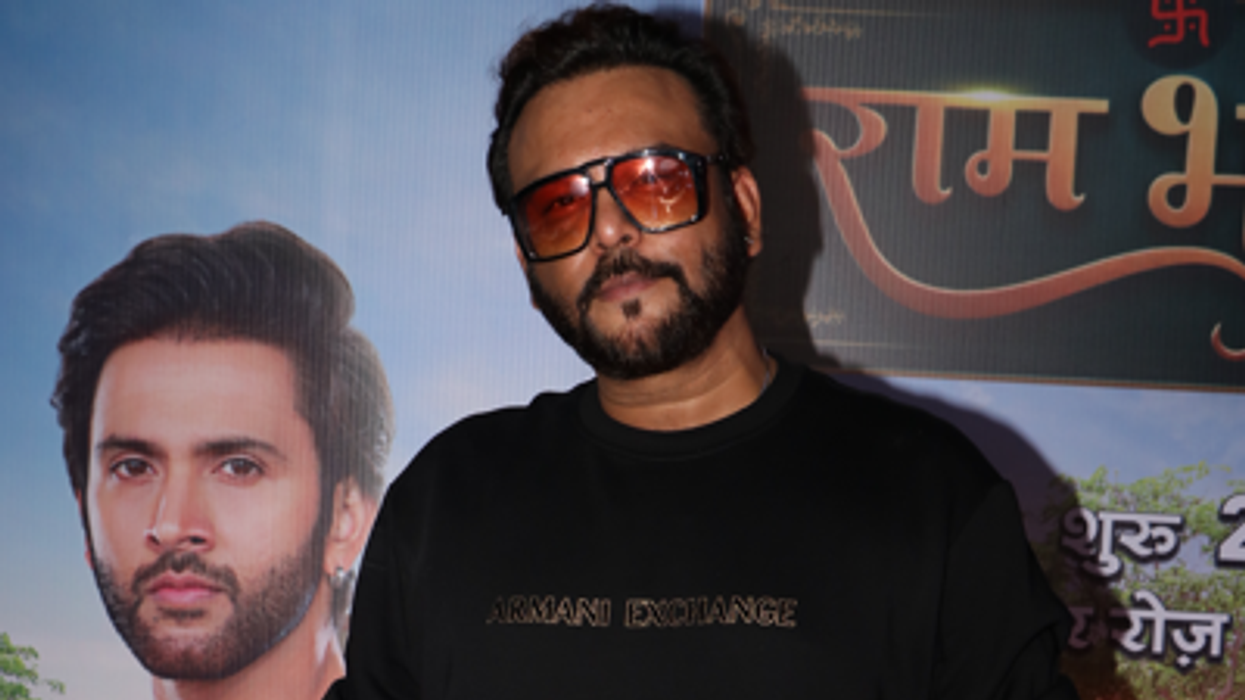
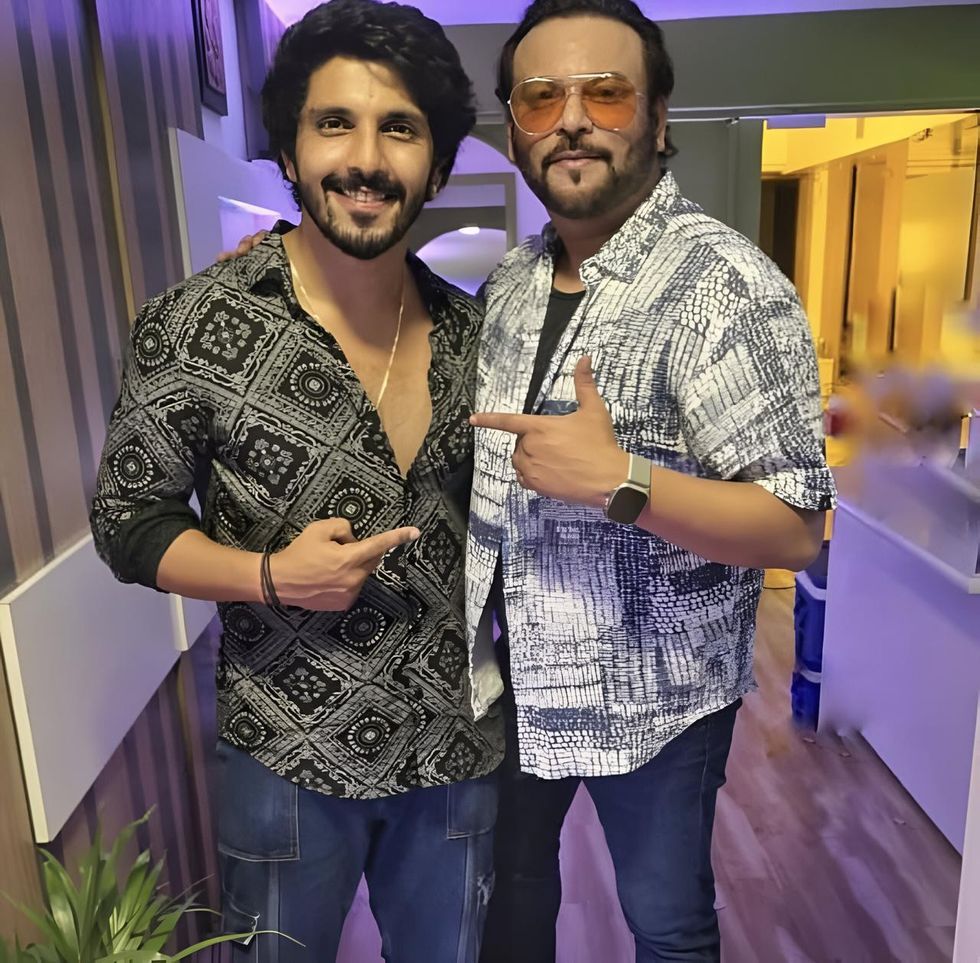 With actor Kanwar Dhillon in 'Ram Bhavan'Instagram/ rahultewary
With actor Kanwar Dhillon in 'Ram Bhavan'Instagram/ rahultewary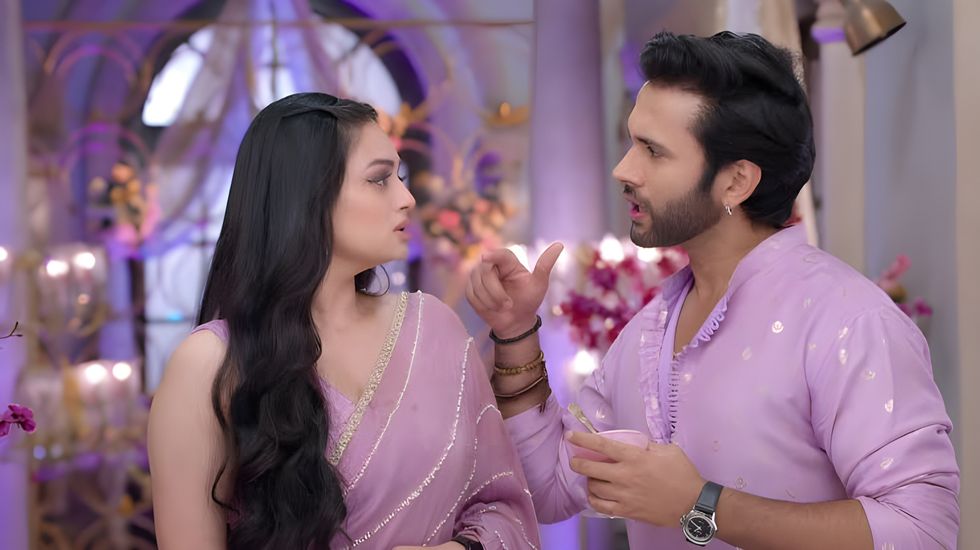 Udne Ki AashaScreen Grab 'Udne Ki Aasha'
Udne Ki AashaScreen Grab 'Udne Ki Aasha'